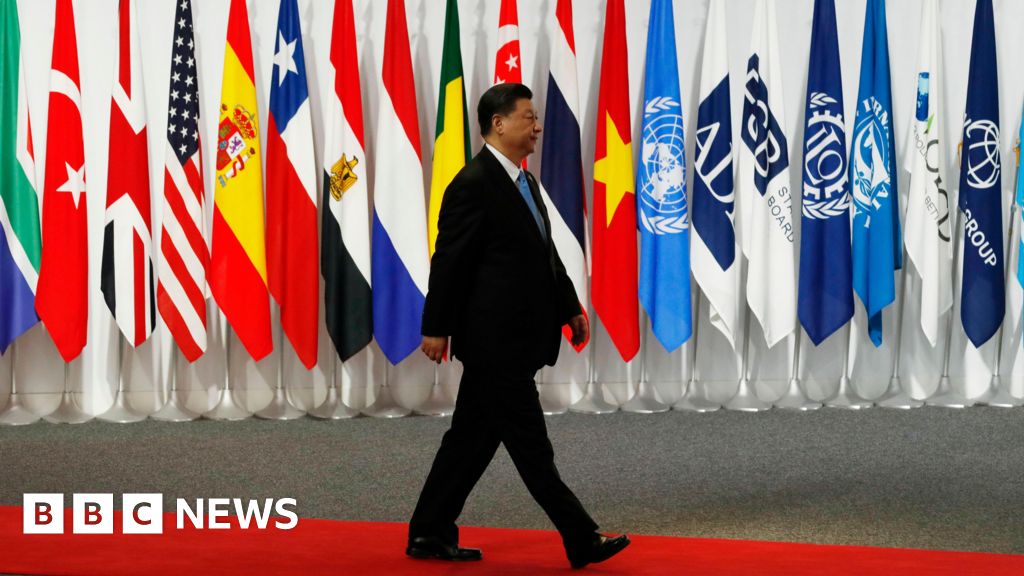North Korean leader Kim Jong Un attending a military parade in the centre of Beijing, alongside Russian President Vladimir Putin and China's leader Xi Jinping, is quite the photo-op. It's also a key diplomatic win for Xi.
The Chinese leader has been trying hard to project Beijing's power on the international stage - not just as the world's second-largest economy, but also as a diplomatic heavyweight. He has emphasized China's role as a stable trading partner while Trump's tariffs upended economic relationships.
Now, while a deal with Putin to end the war in Ukraine continues to elude the U.S. President, Xi is getting ready to host him in Beijing. Kim's attendance, a surprise announcement, is no less significant. Trump said last week, in a meeting with the South Korean president, that he wanted to meet Kim Jong Un again.
His last shot at diplomacy with the reclusive dictator ended with no breakthroughs - despite two summits that captivated the world. Trump is suggesting he wants to try again. Meanwhile, the Chinese leader is signaling that he may hold the geopolitical cards in this game, and that his influence – though limited – may prove crucial in any deal.
The parade on 3 September will see a display of China's military might to mark 80 years since Japan surrendered in World War Two, bringing an end to its occupation of parts of China. But now Xi has also turned it into a display of something more - and the timing is key.
There is plenty on the table for the two to discuss, from a long-awaited tariffs deal and the sale of TikTok in the U.S., to Beijing's ability to persuade Putin to agree to a ceasefire or more in Ukraine. Now, having met both Kim and Putin, Xi is positioning himself strategically as they potentially negotiate with Trump.
Xi's engagements highlight a potential shift in the geopolitical landscape, with the possibility of a meeting involving Xi, Putin, Kim, and Trump looming on the horizon.
The Chinese leader has been trying hard to project Beijing's power on the international stage - not just as the world's second-largest economy, but also as a diplomatic heavyweight. He has emphasized China's role as a stable trading partner while Trump's tariffs upended economic relationships.
Now, while a deal with Putin to end the war in Ukraine continues to elude the U.S. President, Xi is getting ready to host him in Beijing. Kim's attendance, a surprise announcement, is no less significant. Trump said last week, in a meeting with the South Korean president, that he wanted to meet Kim Jong Un again.
His last shot at diplomacy with the reclusive dictator ended with no breakthroughs - despite two summits that captivated the world. Trump is suggesting he wants to try again. Meanwhile, the Chinese leader is signaling that he may hold the geopolitical cards in this game, and that his influence – though limited – may prove crucial in any deal.
The parade on 3 September will see a display of China's military might to mark 80 years since Japan surrendered in World War Two, bringing an end to its occupation of parts of China. But now Xi has also turned it into a display of something more - and the timing is key.
There is plenty on the table for the two to discuss, from a long-awaited tariffs deal and the sale of TikTok in the U.S., to Beijing's ability to persuade Putin to agree to a ceasefire or more in Ukraine. Now, having met both Kim and Putin, Xi is positioning himself strategically as they potentially negotiate with Trump.
Xi's engagements highlight a potential shift in the geopolitical landscape, with the possibility of a meeting involving Xi, Putin, Kim, and Trump looming on the horizon.


















